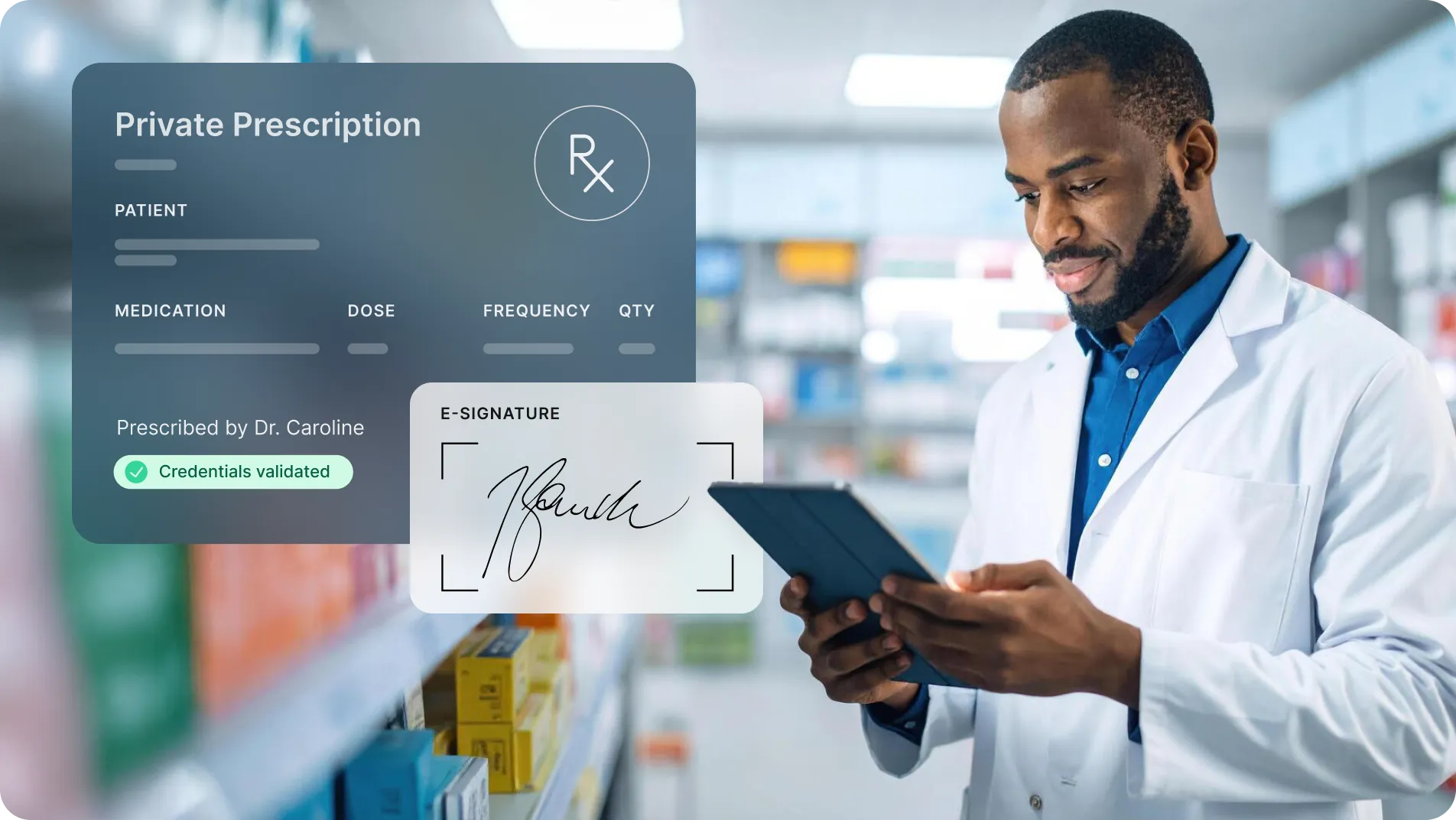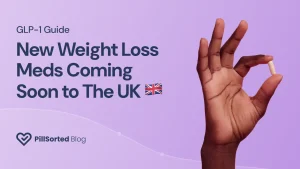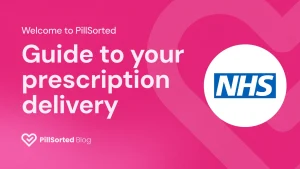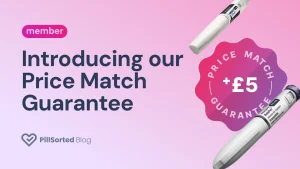Making Private Prescriptions Safe with Advanced Digital Signatures

Digital transformation in healthcare is only as strong as the trust built into its systems. For prescribers, pharmacists, and technology providers, that trust depends on authenticity, integrity, and compliance. Everyone involved needs absolute confidence that a prescription is genuine, unaltered, and legally valid.
In the past, trust came from wet-ink signatures and the occasional phone call to confirm details. Today, electronic prescriptions make healthcare faster and more efficient. However, they must still meet the same rigorous standards of safety and authenticity that patients and professionals expect.
As a result, the question is clear: how can we guarantee that digital prescriptions remain safe and reliable? In this post, we explain what the law requires, why private prescribing carries extra risks, and how PillSorted is raising the bar.
In this post:
- The legal and regulatory landscape
- NHS vs private prescribing
- PillSorted’s dual role
- How our signature system works
- Why this matters for the industry
- Demonstrated compliance
- Setting a new benchmark
The Legal and Regulatory Landscape
The UK’s move to digital prescribing accelerated after 2015, supported by the Human Medicines Regulations 2012. Regulation 219 states that every electronic prescription must carry an advanced electronic signature, as defined in Article 26 of the eIDAS Regulation (EU 910/2014).
For a signature to be legally valid, it must:
- Be uniquely linked to the prescriber
- Identify the prescriber
- Be created using data under the prescriber’s sole control
- Invalidate if altered, making tampering immediately detectable
These rules are not optional. They are legal safeguards designed to ensure authenticity, integrity, and compliance across digital prescribing.
NHS vs Private Prescriptions
Within the NHS, the Electronic Prescription Service (EPS) now processes more than 95% of prescriptions in England. It connects GP surgeries and community pharmacies in a single, secure, and standardised system. Therefore, when a prescription is issued through EPS, patients and professionals alike can trust its integrity.
In contrast, private prescriptions lack a centralised platform. Each provider is responsible for creating its own systems and safeguards. As a result, standards can vary, leaving gaps in security and compliance. Without advanced electronic signatures, providers cannot guarantee authenticity or legal validity.
This is why advanced digital signatures are so important. They turn a vulnerable document into a prescription that patients and pharmacies can trust.
PillSorted’s Dual Role: Developer and Pharmacy
At PillSorted, we hold a unique position in healthcare. We are both the developer of prescribing software and the pharmacy that dispenses through it.
This dual role means we are accountable under two NHS clinical safety standards:
- DCB0129 for health IT system developers
- DCB0160 for healthcare organisations implementing and using IT systems
We are also bound by the Health and Social Care Act 2012 and the Health and Care Act 2022, which require governance and accountability at every stage of prescribing.
Unlike software-only providers, who are rarely responsible for how prescriptions are used in practice, PillSorted carries end-to-end accountability. From design to dispensing, we take responsibility. This dual role is uncommon in the private sector and allows us to deliver NHS-grade safety in private prescribing.
How Our Advanced Digital Signature System Works
To close the security gap, we have built a tamper-evident signing and verification system aligned with NHS standards. Every prescription is protected through five key layers:
- Secure digital identity – each prescriber receives a unique, non-transferable digital key tied permanently to their account.
- Strong authentication – only verified credentials unlock the key, ensuring sole control.
- Tamper-evident sealing – prescriptions are cryptographically sealed, locking in all details.
- Instant verification – any change made after signing automatically invalidates the signature.
- Comprehensive audit trail – every action, from issue to cancellation, is logged with timestamps and user details.
This system makes prescriptions not only legally valid but also provably authentic and tamper-proofes prescriptions are not only legally valid but also provably authentic and tamper-proof.
Why This Matters for the Industry
Legacy approaches to private prescribing — paper scripts, scanned documents, or basic digital signatures — introduce significant risks:
- Vulnerability to forgery and tampering
- Fragmented and inconsistent standards
- Delays in dispensing due to verification checks
- Failure to meet UK legal requirements for advanced electronic signatures
These are not abstract risks. In 2021/22, EPS processed nearly 1 billion prescriptions,
covering 95% of items in England. This shows what a secure, standardised system can achieve. Private providers must match this standard by adopting advanced electronic signatures and full audit trails.
Demonstrated Compliance
At PillSorted, compliance is proven in practice, not just promised on paper. Our systems integrate with critical NHS infrastructure, including:
- Patient Demographic Service (PDS) – real-time patient identity checks against the national database.
- IM1 APIs – secure, standards-based data exchange with NHS systems.
These integrations require extensive testing, strict security assurance, and ongoing monitoring. They demonstrate that our systems meet NHS expectations for safety, interoperability, and governance.
Setting a New Benchmark
Healthcare technology is advancing quickly, but trust must remain central. Advanced electronic signatures — already standard in banking and other regulated industries — are now essential for private prescribing too.
At PillSorted, we’ve shown that private prescribing systems can:
- Meet full legal requirements for advanced electronic signatures
- Operate under NHS-level clinical safety frameworks
- Deliver transparent, tamper-evident audit trails
- Integrate seamlessly with national NHS services
This goes beyond compliance. It is a blueprint for the future of safe private prescribing. By holding ourselves to NHS standards in the private sector, we demonstrate what responsible digital governance should look like.
The Bottom Line
Advanced electronic signatures are more than a legal requirement. They are the foundation of trustworthy digital healthcare. The NHS has shown what’s possible with centralised standards and strong safeguards. Now, private prescribing must rise to the same level.
At PillSorted, we are not waiting for the industry to catch up. We are leading the way. By combining our role as both developer and dispenser, we ensure private prescriptions meet NHS-grade standards of safety, compliance, and trust.
Main takeaways
- Advanced electronic signatures are required by law (Human Medicines Regulations 2012, Reg 219).
- NHS prescribing sets the gold standard, with EPS covering 95% of prescriptions.
- Private prescribing is more vulnerable without a unified framework.
- PillSorted offers dual accountability as both software developer and pharmacy.
- Our system is tamper-evident, auditable, and NHS-integrated, raising the bar for private care.
- This is more than compliance — it’s a model for how private providers can match NHS standards.
References
- Legislation.gov.uk, (2012). The Human Medicines Regulations 2012
- NHS England. DCB0129: Clinical Risk Management: its Application in the Manufacture of Health
- NHS England. DCB0160: Clinical Risk Management: its Application in the Deployment and Use
- The Pharmaceutical Journal (2023). Nearly 1 billion e-prescriptions issued over past year
PillSorted
At PillSorted, we go further. As both software developer and dispensing pharmacy, we’re accountable under dual NHS safety standards. Our tamper-evident, auditable system delivers NHS-grade assurance for private care—setting a new benchmark for digital prescribing.
Ready to learn more? Contact our team at 033 4050380 or email help@pillsorted.com.

All third-party trademarks (including logos and icons) referenced by PillSorted remain the property of their respective owners. Unless specifically identified as such, PillSorted’s use of third party trademarks does not indicate or imply any relationship, sponsorship or endorsement between PillSorted and the owners of these trademarks.





























